Confirmed speakers
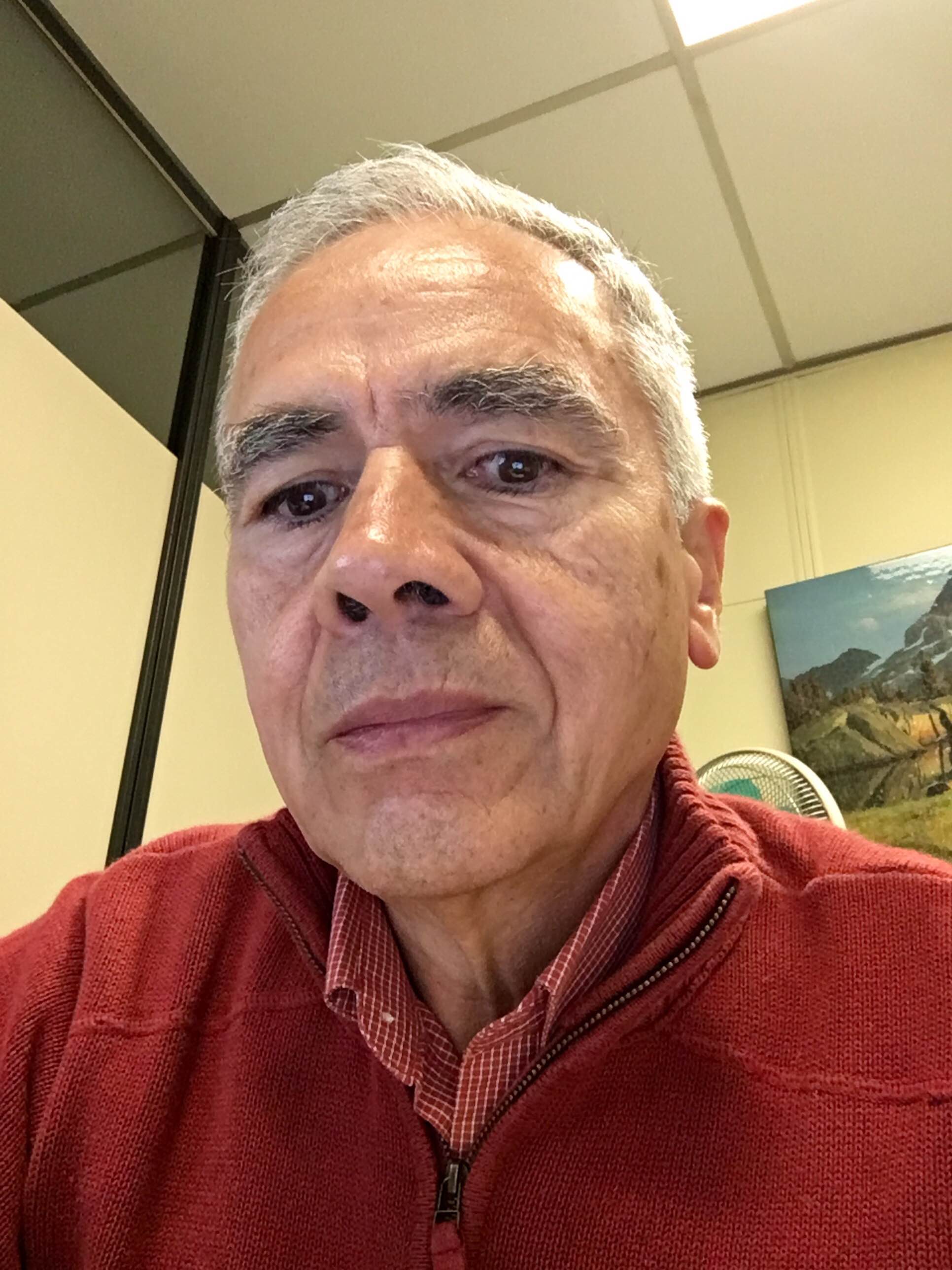 |
RACOM Microelectronics |
Mexico |
|
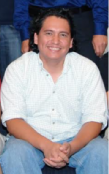 |
Stevens Institute of Technology | USA | |
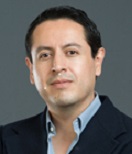 |
Bank of Mexico | Mexico | |
 |
ESFM IPN | Mexico | |
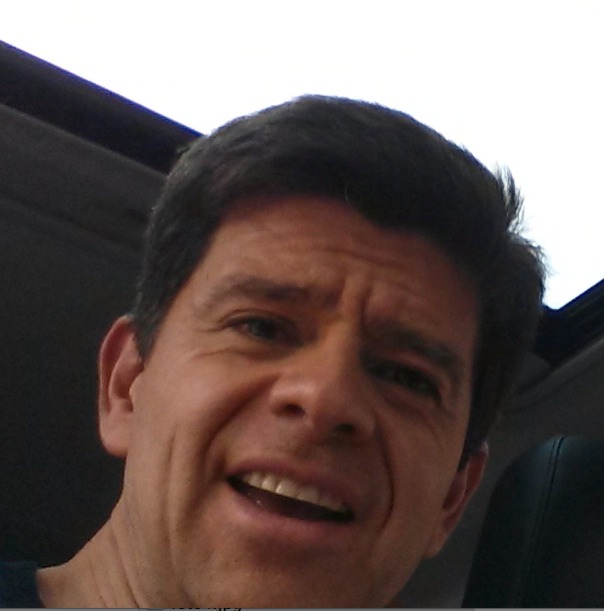 |
CINVESTAV-IPN | Mexico | |
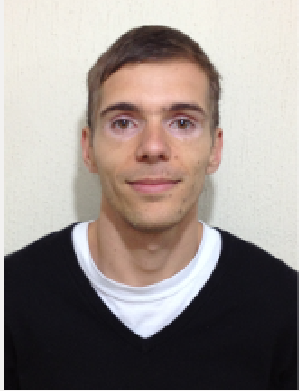 |
Carlos Segura | CIMAT | Mexico |
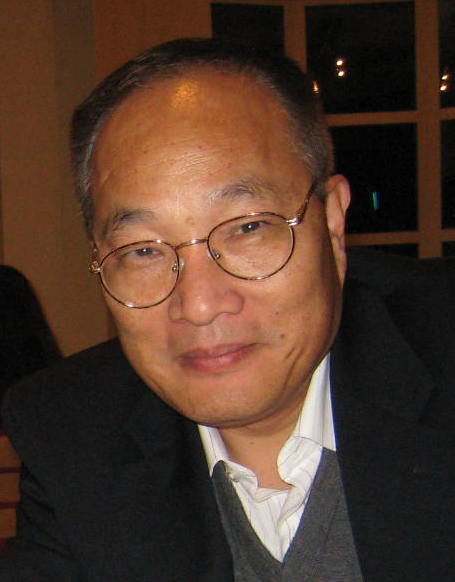 |
Jian-Qiao Sun | UC Merced | USA |
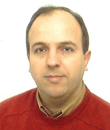 |
El-Ghazali Talbi | University Lille 1 | France |
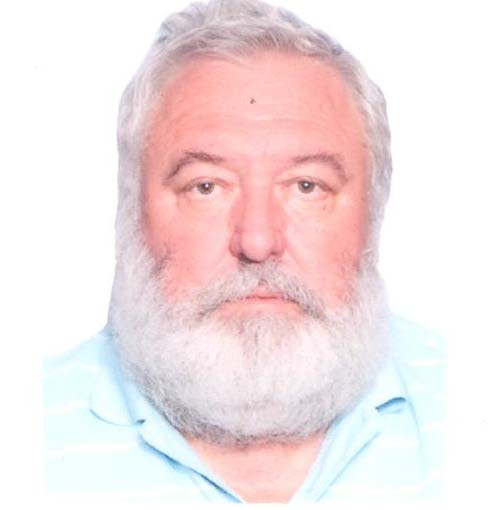 |
Maxim Ivanov Todorov | UDLAP | Mexico |
 |
Francisco Javier Zaragoza Martínez | UAM | Mexico |
 |
University of Strathclyde | Scotland | |
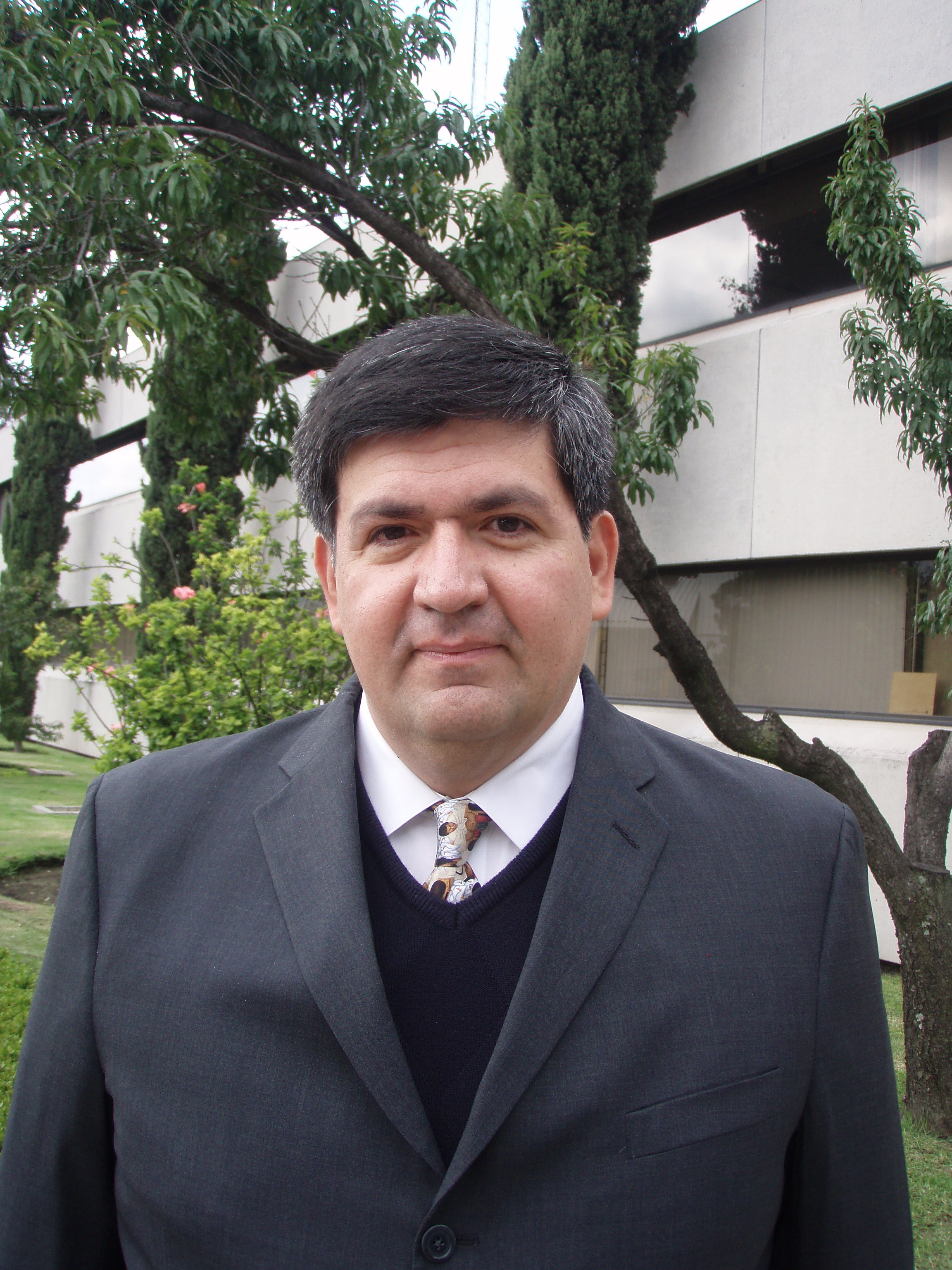 |
Carlos Coello Coello | CINVESTAV-IPN | Mexico |
- Raul Cortes Mateos
RACOM Microelectronics
Title: Implementation of AMI with a Raspberry Pi and a LoRa network
Abstract: One of the areas in which the Smart Cities focus is on public services, with special interest where is needed a constant supply to users and therefore should be permanently measured to have a good consumption record and proper billing. For such services, in particular water, gas and electricity the AMI (Advanced Metering Infrastructure) have surged. But it is in the power sector where AMI have taken a significant development over the last decade because they are essential part of a Smart Grid.
BIO: Raúl Ángel Cortés Mateos ESTUDIOS Ingeniero en Electronica y Comunicaciones 1971 ESIME ZACATENCO, Doctor en Ciencias en Ingeniería Eléctrica SEPI ESIME ZACATENCO, TRABAJOS ACTUALES Profesor Investigador en el departamento de Ingeniería Eléctrica SEPI ESIME ZACATENCO. Fundador y actual Presidente de la empresa RACOM Microelectronics SA de CV. Areas de Investigación actuales: Soluciones Integrales en Ciudades Inteligentes, principalmente en la problemática del control del Agua y Energía. - Enrique Dunn
Stevens Institute of Technology, USA
Title: Data-Driven 3D Modeling
Abstract: The visual inference of geometric and semantic concepts from capture imagery is still an open research problem being vigorously researched both in academia as in industry. The pervasive generation and public dissemination of visual media offer an ever-increasing datum of observed environments and events. The sheer amount of imagery and the wide-ranging diversity of recorded content renders the analysis of said data a challenging technical task. Large-scale visual 3D modeling provides a framework to both integrate such heterogeneous imagery into a common reference and synthesize rich environmental representations. In many regards, image-based geometry estimation has achieved a level of maturity that renders it as a “deployable technology” in consumer electronics (e.g. Microsoft’s Kinect Sensor) and enterprise-level data services (e.g. Google/Apple/Bing Maps). However, the continuous influx of video and image data (available in public archival and crowd-sourced repositories, social media, and live feeds) opens a diverse set of new challenges and opportunities for the deployment of 3D modeling systems. The first challenge (and perhaps the most evident) is achieving computational scalability in the presence of Internet-scale unstructured imagery datasets. Second, exploiting the heterogeneous nature of the available data to enhance (rather than hinder) the attained environmental representations. Third, modeling the observed environmental dynamics from uncontrolled imagery. In this talk, I will discuss recent research efforts aimed at augmenting the computational and conceptual scope of image-based 3D modeling in the context of crowd-sourced visual data. More specifically, I will present solutions to the aforementioned challenges by addressing the problems of large-scale data association, enhanced model fidelity through multi-source visual media integration, and spatiotemporal structure modeling from ad-hoc and unsynchronized video capture. The relevance of these technologies to fields such as remote sensing, robotics, virtual reality and human computer interaction will also be discussed.
BIO: Enrique Dunn is an Associate Professor in the Department of Computer Science of the Stevens Institute of Technology (Hoboken, New Jersey, USA). Prior to joining Stevens IT, Dr. Dunn was first a postdoctoral researcher, and subsequently, a Research Assistant Professor in the Department of Computer Science of the University of North Carolina at Chapel Hill. He holds a degree in computer engineering from the Autonomous University of Baja California (UABC Mexico), as well as a master’s degree in Computer Science and a doctorate in Electronics and Telecommunications, both from the Ensenada Center for Scientific Research and Higher Education (CICESE Mexico). His research on 3D Computer Vision focuses on geometric and semantic scene modeling in the context of large and heterogeneous visual data spanning multiple modalities. Dr. Dunn has authored over 45 papers in international conferences and journals within the fields of computer vision and photogrammetry. He is a regular reviewer for the top computer vision conferences (e.g. CVPR, ICCV, ECCV, SIGHGRAPH) and is a member of the Editorial Board of Elsevier Journal of Image and Vision Computing. - Gerardo Hernández-del-Valle
Bank of Mexico
Title: Optimal liquidation of assets and valuation of derivatives
Abstract: In this work we develop an optimal liquidation strategy to sell (or buy) a large position K of a given asset S by a fixed time T. To this end, we asume that the price is modelled as a Geometric Brownian motion and thus the market impact, due to the trading strategy, affects the price process geometrically.
Alternatively, using our model we study the effect of transacting a large position B of a financial derivative with underlying S. We show, for instance, that if a Company decides to cover a large position on a given asset S (for instance Oil, Copper, currency, etc.) with a plain vanilla European put (or call) options, the price of the underlying will be affected by the trade, as well as the price of the derivative.
BIO: Dr. Hernández-del-Valle obtained his bachelor's degree in Electrical Engineering in Mexico City. He carried out his graduate studies in Statistics and Probability at Columbia University. After concluding his PhD he remained at Columbia, first as a post-doc and next as an Assistant Professor at the Statistics Department. Simultaneously he collaborated at Algorithmic Trading Management LLC (now COWEN) as a Quantitative Analyst. Since December 2013 he works at Banco de México at the Economic Studies Department. Gerardo's main fields of interest are: Stochastic Analysis, Mathematical Finance, and Economics, with published papers in Geophysics, Stochastic Analysis, Finance, Applied Math., and Economics. - Adriana Lara
ESFM IPN, Mexico
Title: Design Issues for Multi-objective Memetic Algorithms
Abstract: This overview work presents the main concepts related to Multi-objective Memetic Algorithms (MMA). The focus is on advanced design aspects when constructing MMAs; through application examples, some issues like genetic encoding, the choice of an appropriate local searcher and alternative ways to balance resources, among other, are discussed.
BIO: Adriana Lara received the B.Sc. degree in Physics and Mathematics from the National Polytechnic Institute of Mexico (IPN), in Mexico City; the M.Sc. degree in Electrical Engineering and the Ph.D. degree in Computer Sciences from Centro de Investigación y Estudios Avanzados (CINVESTAV-IPN), in Mexico City, in 2003 and 2012 respectively. She is a Full Time Professor with the Mathematics Department of the Physics and Mathematics School (ESFM) at the IPN in México City. Her current research interests include Multiobjective Optimization, Hybrid Algorithms and Topological Data Analysis. She has received the IEEE Transactions on Evolutionary Computation Outstanding Paper Award for 2010, and also for 2012. She also received the 2010 Engineering Award granted by the Mexico City’s Science and Technology Institute (ICyTDF).
Jesus Gonzalez
CINVESTAV-IPN, Mexico
Title: Topology and combinatorics of motion planning in robotics
Abstract: I will give an overview of the concept introduced by Michael Farber early this century to model and study the motion planning problem in robotics. While Farber's idea proposes the use of techniques in algebraic topology, in this talk I will focus on a discretized version of the model, suitable for computational experiments, and real-world applications.
Carlos Segura
CIMAT, Mexico
Title: Management of Diversity in Evolutionary Algorithms and its application to the Frequency Assignment Problem
Abstract: Population-based metaheuristics have yielded very promising results in a large amount problems. However, there are several issues that affect their performance and that appear frequently in the design of population-based strategies. Two of the most common issues are premature convergence and the way of handling neutrality. One of the problems where these issues are affecting the performance of state-of-the-art strategies is the Frequency Assignment Problem. In this problem, metaheuristics have yielded very promising results. However, the results obtainable using currently published methods are far from ideal in complex, large-scale instances. In this talk, a review of the state-of-the-art in the application of metaheuristics to the frequency assignment problem will be briefly presented. Additionally, some new principles to design metaheuristics in a way that the previously mentioned drawbacks can be alleviated are discussed. A recently developed strategy that combines several of the most advanced operators designed for the frequency assignment problem with these design principles is presented. Specifically, the method applies a recent replacement-based diversity management strategy to face these two issues. The relation between the distance metric applied in this strategy and the way of handling neutrality is shown. The performance of the methods presented in this talk will be discussed by considering 44 publicly available instances, showing that new best-known solutions can be obtained in several cases. The application of similar principles to different problems will also be discussed.
Bio: Carlos Segura was born in Santa Cruz de Tenerife, Spain, on August 03, 1983. He received his M.S. degree in Computer Science from the Universidad de La Laguna in 2009, and his Ph.D. degree in Computer Science from the Universidad de La Laguna, in 2012. He was a teaching assistant in the University of La Laguna and a post-doc researcher in the Center for Research and Advanced Studies in Mexico D.F. He is currently an Associate Researcher in the Computer Science Department at the Centre for Research in Mathematics, in Guanajuato. Carlos Segura has authored and co-authored over 50 technical papers and book chapters, including 16 journal papers. His publications currently report over 300 citations in Google Scholar and his h-index is 13. Currently he serves on the editorial board of several international conferences. His main research interests are: design of evolutionary algorithms, diversity management and problem solving paradigms. Dr. Segura is a Member of the IEEE and a member of the ACM.
Jian-Qiao Sun
UC Merced, USA
Title: Multi-objective Optimal Defensive Driving Strategy for Autonomous Ground Vehicle in Mixed Traffic
Abstract: One of the challenges of autonomous ground vehicles (AGVs) is to interact with human driven vehicles in the traffic. This talk reports defensive driving strategies for AGVs in the mixed traffic. A novel multi-objective optimization algorithm for local trajectory planning is presented. The dynamic predictive control is used to derive optimal trajectories in a rolling horizon. The intelligent driver model and lane-changing rules are employed to predict the movement of the vehicles. The longitudinal terminal velocity and acceleration are taken as the design parameters. Multiple performance objectives are optimized simultaneously, including traffic safety, transportation efficiency, driving comfort and path consistency. The multi-objective optimization problem is solved with the cell mapping method. Different scenarios are created to test the effectiveness of the defensive driving strategies. Extensive simulations are carried out to validate the proposed defensive driving strategy. This study provides a framework for autonomous vehicles to interact with human drivers in the mixed traffic.
Bio: Dr. Jian-Qiao Sun earned his PhD from University of California at Berkeley in 1988. He worked for Lord Corporation at their Corporate R&D Center in Cary, North Carolina, and since engaged in smart materials research and applications, and acoustic-structural controls. In 1994, Dr. Sun jointed the faculty of the department of Mechanical Engineering at the University of Delaware as an Assistant Professor, was promoted to Associate Professor in 1998 and to Professor in 2003. He is currently a professor in School of Engineering at University of California, Merced. He was an Associated Editor of ASME Journal of Vibration and Acoustics from 1994 to 2000, and was an Associated Editor of Communications in Nonlinear Science and Numerical Simulations from 2001 to 2012, an Editorial Board Member of Acta Mechanica Solida Sinica from 2003 to 2012, an Editorial Board Member of Journal of Vibration and Control since 2005 and Journal of Sound and Vibration since 2006. In October 2012, he started serving as the founding Editor-in-Chief of International Journal of Dynamics and Control published by Springer. His research interests include cell mapping methods, multi-objective optimization, nonlinear random vibrations, nonlinear controls, active structural-acoustic control, stochastic systems, modeling and physical therapy applications of smart materials, time-delayed dynamical systems, and optimal HVAC control and fault detection of energy efficiency of office buildings.
El-Ghazali Talbi
University Lille 1
Title: Combining metaheuristics with mathematical programming and data mining
Abstract: During the last years, interest on hybrid metaheuristics has risen considerably in the field of optimization and machine learning. The best results found for many optimization problems in science and industry are obtained by hybrid optimization algorithms. Combinations of optimization tools such as metaheuristics, mathematical programming, constraint programming and machine learning, have provided very efficient optimization algorithms. Four different types of combinations are considered in this paper: (i) Combining metaheuristics with complementary metaheuristics. (ii) Combining metaheuristics with exact methods from mathematical programming approaches which are mostly used in the operations research community. (iii) Combining metaheuristics with constraint programming approaches developed in the artificial intelligence community. (iv) Combining metaheuristics with machine learning and data mining techniques.
Bio: El-Ghazali Talbi received the Master and Ph.D. degrees in Computer Science from the Institut National Polytechnique de Grenoble in France. He is a full Professor in Computer Science at the University of Lille (France) and head of the DOLPHIN team dealing with robust multi-objective optimization of complex systems (INRIA, CNRS, University of Lille). His current research interests are in the fields of metaheuristics, multi-objective combinatorial optimization, parallel and cloud computing, hybrid and cooperative optimization, and application to logistics/transportation, cloud computing, energy and biomedical. He is the founder of the conference META (International conference on metaheuristics and nature inspired computing) and co-founder of the META group (GDR RO, GDR MACS, ROADEF). Professor E-G. Talbi has to his credit more than 150 international publications and 5 books. His h-index is 43
Maxim Ivanov Todorov
UDLAP, Mexico
Title: New criteria for efficiency in vector optimization
Abstract: We consider vector optimization problems over a finite dimensional space, where the objective functions are continuously differentiable. In a previous work of Brosowski et al., a couple of tests to detect wheather a certain point is efficient or not, have been proposed. We add several new ones and investigate weakly efficiency as well. Under appropriate hypothesis and restrictions, we show that the points, which do not satisfy our tests, form a nowhere dense set.
BIO: Institución y dependencia de trabajo: Universidad de las Américas Puebla, Escuela de Ciencias, Dpto. de Actuaria, Física y Matemáticas
Campo de especialidad: Matemáticas, Investigación de Operaciones, Optimización
Doctorados: Ph.D. marzo de 1987, D.Sc. enero de 2007, Instituto de Matemáticas e Informáticas de la Academia de Ciencias Búlgara, Sofía, Bulgaria
Cargo actual: Catedrático
Miembro del SNI, nivel III
Dirección de tesis: Ha dirigido dos tesis de licenciatura, diez de maestría y seis de doctorado
El Dr. Maxim Ivanov Todorov obtuvo su grado de licenciatura y maestría en Matemáticas por la Facultad de Matemáticas de la Universidad de Sofía, BG el año 1979. El Doctorado y el grado de Doctor de Ciencia le fueron otorgados por el Instituto de Matemáticas e Informáticas de la Academia de Ciencias Búlgara.
Ingreso en el Instituto de Protección de Plantas el 1979, el 1982 en el Laboratorio de Matemáticas Aplicadas de la ACB y desde el año 1992 es miembro del Instituto de Matemáticas e Informáticas de la ACB. El 1998 fue invitado con Cátedra Patrimonial por la FCFM de la BUAP y de 2002 hasta la fecha es Catedrático en la EDEC de la UDLAP. Durante su estancia en México fue encargado del área de Optimización en el Posgrado de la FCFM y coordinador de Licenciatura de Matemática Aplicada en EDEC. Fue Director del Centro de Investigación CIFMA en la UDLAP.
Sus líneas de investigación son Programación Semi-infinita, Optimización Vectorial y Análisis Convexo. Es autor de 59 publicaciones en revistas especializadas con arbitraje, 11 capítulos de libros, un libro editado y un libro escrito.
Ha sido invitado en más que 20 diferentes Universidades de Bulgaria, Alemania, España, Argentina y Brasil, etc. para dar conferencias o hacer estancias de Investigación. Dr. Todorov ha participado en 88 Congresos Nacionales e Internacionales con 31 ponencias invitadas.
Por su trabajo ha recibido varios reconocimientos como, “Medalla de Oro, EXPO-91”, “Visitante Distinguido” de la ciudad de Puebla y “Miembro Regular de la Academia de Ciencias Mexicana”, entre otros.- Francisco Javier Zaragoza Martínez
UAM, Mexico
BIO: Francisco Zaragoza obtained his undergraduate degree in Electronic Engineering from UAM Azcapotzalco and his master's degree in Computer Science from Cinvestav, both institutions in Mexico City. Later on, he obtained his doctoral degree in Combinatorics and Optimization from the University of Waterloo in Canada. He has been several times team leader or deputy leader for the Mexican team at the International Olympiad in Informatics. He currently holds a Full Profesorship at UAM Azcapotzalco and is a member of the National System of Researchers (SNI). His main research interest is on combinatorial optimization, approximation algorithms, transportation problems, and more recently computational geometry. In 2015 he won the Discrete Optimization Challenge, a worldwide competition organized by the Friedrich Alexander Universität Erlangen-Nuremberg.
Richard Bellingham
Director Strathclyde Institute of Future Cities
University of Strathclyde
Glasgow, Scotland (UK)
BIO: Richard Bellingham is Director for the Institute for Future Cities at University of Strathclyde, Senior Research Fellow in smart sustainable cities and energy policy, Fellow of the Energy Institute, former Deputy Director of Fraser of Allander Economic Research Institute and former Head of Energy Policy for Scottish Government.
The Institute for Future Cities aims to improve the quality of human life across the world through innovative research that enables cities to be understood in new ways, and develop novel approaches for the ways we live, work, learn and invest in cities. The Institute works in partnership with cities, business and government globally in areas such as sustainability, resilience, wellbeing, and smart cities www.strath.ac.uk/cities/
Richard contributed to Glasgow's successful £24 million TSB Future Cities Demonstrator Bid and is leading creation of the City Observatory. The new City Observatory is drawing together urban data to allow cities to be seen in new ways and effective solutions created for urban issues. Richard wrote the Sustainable Glasgow strategy - working with city and businesses to develop low-carbon solutions to make Glasgow one of Europe’s most sustainable cities. He is also European coordinator for the STEP UP EU programme – working with Glasgow, Gothenburg, Riga, and Ghent to create integrated urban sustainability plans.
Richard also has extensive experience of delivering large and complex ICT systems as Head of e-Government Policy, Head of Digital Inclusion and Head of Corporate ICT Strategy for the Scottish Government – and has over 15 years’ experience of advising Ministers in a wide range of policy areas, working with national and international organisations.
Carlos Coello Coello
CINVESTAV-IPN, Mexico
Title 1: Meta-heuristics for Multi-objective Optimization (Sept. 22)
Abstract: This tutorial provides with a general picture of the current state-of-the-art in multiobjective optimization using metaheuristics. First, some historical background is provided, dating back to the origins of multiobjective optimization in general. This discussion motivates the use of metaheuristics for solving multiobjective problems and includes a brief description of some of the earliest approaches proposed in the literature. Then, a discussion on different heuristics used for multiobjective optimization is provided. This discussion includes evolutionary algorithms, simulated annealing, tabu search, scatter search, the ant system, particle swarm optimization and artificial immune systems. The tutorial finishes with a discussion of some of the research topics that seem more promising for the next few years.
Title 2: An Introduction to Evolutionary Multi-Objective Optimization and Some of Its Applications in Smart Cities (Sept. 23)
Abstract: In this talk, I'll provide a general overview on the use of evolutionary algorithms for solving problems having two or more (normally conflicting) objectives (the so-called multi-objective optimization problems). The talk will describe, from a historical perspective, the most representative research that has been conducted in this area, with a particular emphasis on algorithmic developments. In the final part of the talk, some sample applications of multi-objective evolutionary algorithms in smart cities will be provided.
BIO: Carlos Artemio Coello Coello received a PhD in Computer Science from Tulane University (USA) in 1996. He is a pioneer in an area that is now known as “evolutionary multi-objective optimization”. His research has mainly focused on the design of new multi-objective optimization algorithms based on bio-inspired metaheuristics. He currently has over 450 publications which, according to Google Scholar, report over 32,200 citations (with an h-index of 69). He is currently Full Professor with distinction (Investigador Cinvestav 3F) at the Computer Science Department at CINVESTAV-IPN in Mexico City, Mexico. Dr. Coello is associate editor of several journals, including the two most important in his area (IEEE Transactions on Evolutionary Computation and Evolutionary Computation). He is also an IEEE Fellow for his "contributions to multi-objective optimization and constraint-handling techniques". He has received several awards, including the National Research Award (in 2007) from the Mexican Academy of Science (in the area of exact sciences), the 2009 Medal to the Scientific Merit from Mexico City's congress, the Ciudad Capital: Heberto Castillo 2011 Award for scientists under the age of 45, in Basic Science, the 2012 Scopus Award (Mexico's edition) for being the most highly cited scientist in engineering in the last 5 years and the 2012 National Medal of Science in Physics, Mathematics and Natural Sciences from Mexico's presidency (this is the most important award that a scientist can receive in Mexico). He is also the recipient of the prestigious 2013 IEEE Kiyo Tomiyasu Award, "for pioneering contributions to single- and multiobjective optimization techniques using bioinspired metaheuristics".
His current research interests are: evolutionary multi-objective optimization and constraint-handling techniques for evolutionary algorithms.
